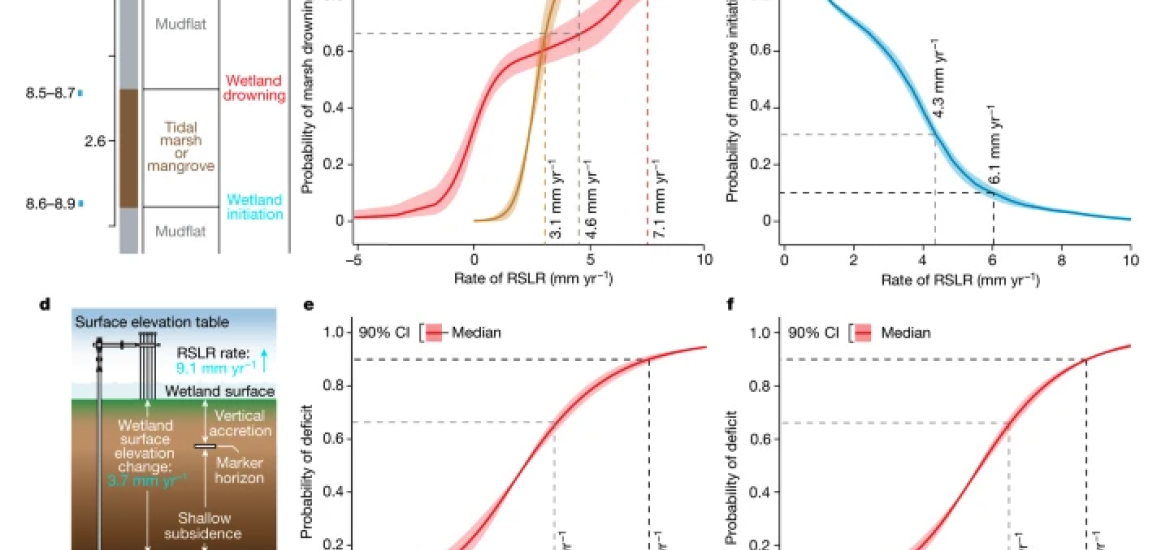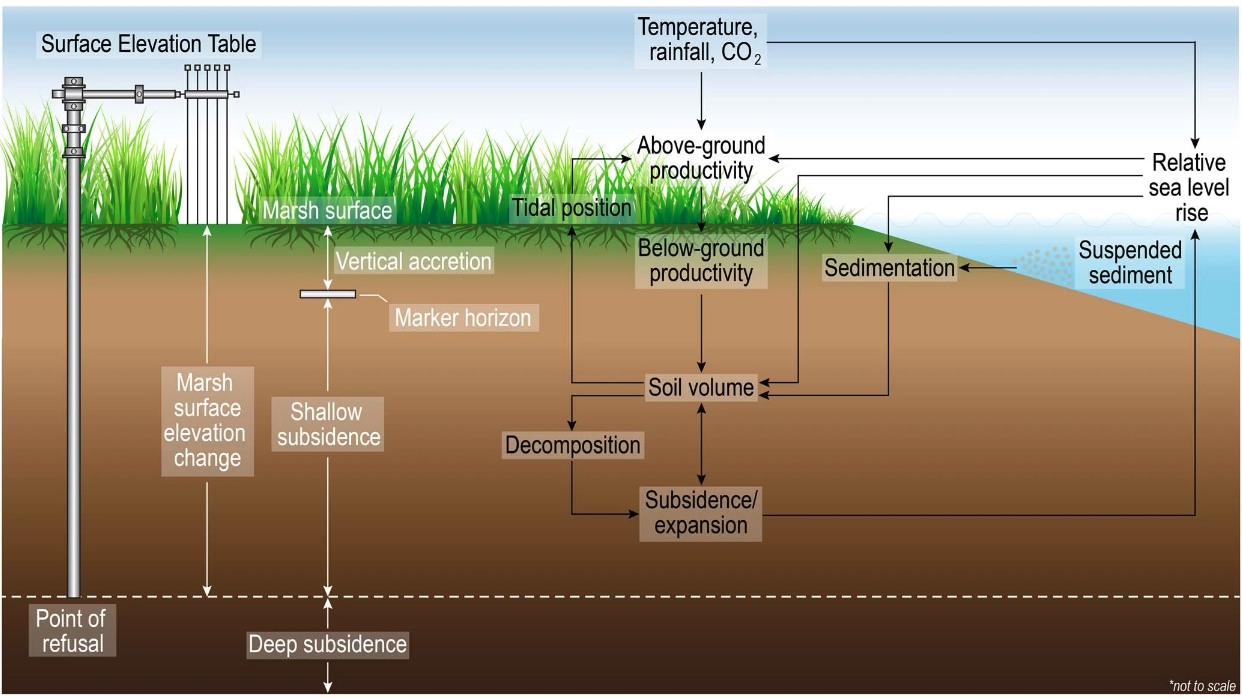- Home
- All News Overview
- Widespread Retreat of Coastal Habitat Is Likely At Warming Levels Above 1.5 °C

Tuesday, 5 September, 2023
A new paper by members of the PALeo constraints on SEA level rise (PALSEA) working group has been published in Nature by Saintilan N et al.
The paper takes a closer look at the impact of relative sea-level rise (RSLR) on various coastal habitats, where the authors show that "the probability of vertical adjustment to RSLR inferred from palaeo-stratigraphic observations aligns with contemporary in situ survey measurements."
The authors analyze three independent lines of evidence to assess coastal ecosystem vulnerability and exposure to higher rates of sea-level rise. They find that higher emission scenarios, while "preserving organic carbon in situ in many settings" would lead to domination of "narrower, younger and more transitional wetlands". Because of this, "coastlines and reef islands that are currently protected will be increasingly exposed to erosion and retreat, consistent with palaeo observations."
The authors conclude from their study that we are fast approaching the boundaries for safe operating spaces for coastal ecosystems. Meeting the Paris Agreement targets of net zero emissions by 2050 is the most effective overall way to promote the continued survival of coastal habitats such as mangrove forests, tidal marshes and coral reef islands.
> Access the article
> Find out more about the PALSEA working group
